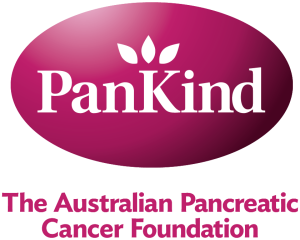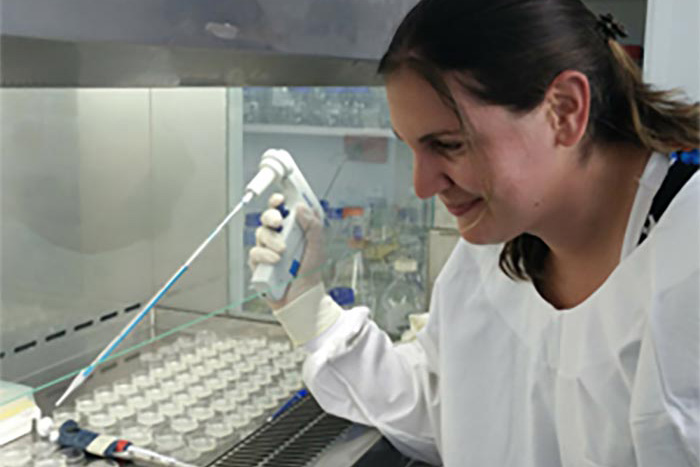PanKind Partnered Trials
Clinical trials are carefully designed research studies which aim to find out if a new treatment or procedure is safe and effective. The following studies are not managed by the PanKind. They are managed by academic research groups who will ensure that their findings are made public through research publications for the benefit of all.
Research by nature is exploratory. Our endorsement of these studies does not pre-suppose positive outcomes of the study.
If you are interested in participating in a clinical trial, please speak to your doctor to make sure that it is right for you.
Caring for someone diagnosed with pancreatic cancer can be very difficult; many people have a high need for extra support. The Pancreatic cancer Relatives Counselling and Education Support Service or PRoCESS trial aims to explore whether talking to a trained nurse-counsellor via video or phone is helpful. Learn more here.
Improving supportive care for people with pancreatic cancer - help design a research study
If you are a person who has been diagnosed with, a family member, or are caring for someone with pancreatic cancer, we would really value having your help to design a new nurse-led model of follow up care.
The purpose of our study is to improve access to specialist nurse-led care for people affected by pancreatic cancer. Our study aims to design a telehealth model of specialist nurse-led care to improve access to cancer supportive care for people affected by pancreatic cancer.
We are looking to recruit people who have experience of pancreatic cancer as a patient, family member or carer to take part in two online workshops. Once developed and tested, the aim is to roll out this model nationally.
In the workshops, we will ask you to help develop the new telehealth model of nurse-led care, using your experience to tell us how the new model should work; what the nurses should ask; how often should they call, etc. The first workshop will bring patients, family members and/or carers together to share their views, and then in the second we will bring patients, family members and/or carers and health care professionals together to agree on the details of the new model of care.
The workshops will be on ZOOM and will go for no more than one and a half hours. The workshops will be spaced about four weeks apart. There are no costs associated with participating in this research project, nor will you be paid.
To express your interest in taking part or to ask any questions about the project please contact the Project Officer, Priscilla Gates, Peter Mac Callum Cancer Centre - priscilla.gates@petermac.org
Are you a health professional that works with patients with pancreatic cancer?
The purpose of this survey is to ask clinicians about their experience with prescribing and monitoring pancreatic enzyme replacement therapy (PERT) in patients post-pancreaticoduodenectomy (PD), Whipple’s procedure, and with advanced pancreatic cancer. You may know PERT medication as CREON.
We are interested in how clinicians decide when to commence a patient on PERT, how decisions are made regarding dosing and timing, and how the efficacy of PERT is monitored. Your responses will help us to conduct further research, with the goal of improving the care of people living with pancreatic exocrine insufficiency (PEI).
Learn more, and complete the survey here.
If you have any questions, please contact Sophie Hooke (Student Researcher) – sophie.hooke@aucklanduni.ac.nz.
The Pancreatic Cancer Pathways to Diagnosis Study (the Pathways Study) aims to talk to people who have been diagnosed with pancreatic cancer to gain a detailed understanding of the ways in which Australians reach their diagnosis. This will help us to develop strategies to help future patients receive their diagnosis quickly.
What does participation involve?
- Completing a questionnaire, on a paper form or online. The questionnaire asks about factors such as education and lifestyle, and also includes an assessment of how people have adjusted to their diagnosis of pancreatic cancer.
- Taking part in an interview, either by telephone or using zoom videoconferencing. In the interview we will ask detailed information about symptoms, and the pathway to diagnosis.
Learn more about the Pathways Study here.
Analysis of Data to Advance Personalised Therapy with MR-Linac (ADAPT MRL-Registery), GenesisCare Australia
About the study:
The ADAPT MRL study is a multi-side, multinational, observational cohort registry designed to collect data on the use of the MR Linac for radiation therapy and patient outcomes.
This registry aims to include an estimated 10,000 eligible participants across Australia and other countries over a 7 to 10 year period.
Eligibility:
People diagnosed with pancreatic cancer and receiving treatment on the MR-Linac.
MR-Linac Eligibility:
To receive MR-Linac SABR treatment there are various criteria you’ll need to meet, and your clinician can help you decide if it’s right for you:
1. You must have been diagnosed with pancreatic cancer that is currently medically inoperable, borderline resectable, locally advanced or locally recurrent. We can treat metastatic pancreatic cancer with controlled disease and also progressing primary disease.
2. You must be otherwise in reasonable health and able to have an MRI scan.
3. As each treatment can take over an hour, you must be comfortable lying within the MR-Linac for that length of time.
Learn more:
Learn more about the registry.
Learn more about the treatment program.
Opportunity to evaluate a new educational program for people with cancer and their family carers
Researchers at the University of Sydney are offering access to a new online training program to improve communication between clinicians, people with cancer and their family carers.
The training program (eTRIO-pc) includes information about how carers can support their loved one with cancer, and offers strategies and tips to help with making medical decisions, communicating with health professionals, and advocating for loved ones.
Study participants will complete the eTRIO-pc training and complete three online surveys.
Eligibility:
People who have received a cancer diagnosis in the last 12 months or received active treatment for cancer in the last 12 months.
Carers of cancer patients who meet the above criteria.
Learn more:
If you are interested in evaluating this novel, evidence-based training program, please click here to express your interest.
If you have any questions please contact sarah.giunta@sydney.edu.au.
Cancer Symptom Management, University of Technology, Sydney
About the study:
The researchers are interested in which cancer symptoms have the biggest impact on daily life for people that are living with or have lived with cancer and those that take care of them.
You are invited to participate in a survey study that is aiming to identify the key research questions which should be addressed as a priority to improve the management of symptoms related to cancer and its treatment.
Eligibility:
People living with cancer, over the age of 18.
People caring for someone with cancer, over the age of 18.
Learn more:
Visit www.uts.edu.au/cst/cstprojects
Email CST@uts.edu.au
Targeted Therapies in Cancer Care, The University of Sydney
About the study:
Social science researchers at the University of Sydney want to hear about your experiences with cancer and receiving targeted therapies, sometimes known as precision therapies, immunotherapies, or molecular therapies.
Eligibility:
Those over the age of 18 that have been screened for, received or are receiving targeted therapies for their cancer.
Learn more:
For more information and to register your interest, please contact:
Dr Alex Page, alexander.page@sydney.edu.au, (+61) 0466 117 792;
Prof Alex Broom, alex.broom@sydney.edu.au, (+61) 0413 060 436; or
Dr Katherine Kenny, katherine.kenny@sydney.edu.au, (+61) 0478 960 578.
Download the information flyer.








